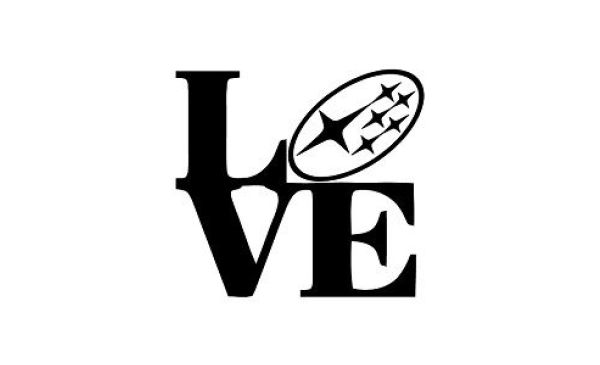Alphabet, Google’s self-created holding company on Friday, has decided not to adopt the “Don’t Be Evil” clause in its code of conduct. It’s settling instead on the less distinctive and vague instruction for employees to “do the right thing” effectively choosing not to go down this path as a way of differentiating itself.
Google itself has kept the No Evil clause. It’s been part of its own code of conduct from the time it was founded and served an important purpose in showcasing the company’s independence and trustworthiness in delivering unbiased and objective search results, not ones that had been paid for by advertisers.
The “Don’t Be Evil” clause is a rare instance of where a company value is both well-known and a source of brand differentiation. Most of the time, company values are worthy but entirely without merit in terms of inspiring employees or directing the company towards or away from specific actions.
Lucy Kellaway took on the subject of company values in a recent column in the Financial Times pointing out that, in the first place, most employees have no idea what their company values even are. She doesn’t find that all that surprising because, as she says: “all corporate values are much of a muchness.” A recent audit she references found that three words: “integrity, respect, and innovation” crop up over and over again—all noble but all hopeless as means to inspire people.
Lucy concludes her piece by proposing that companies get out of the values-creating business. She even had her statistics department run some numbers which showed that the seventeen companies out of the top 100 British companies that have not published their values on their websites outperformed the others on the FTSE Index by about 70%.
So, is this the answer? “Yes” if you’re going to come up with a list of politically-correct, feel-good words that work for every eventuality. But perhaps “no” if you can identify opportunities for distinctiveness which at least some companies have been able to do:
1. Companies Driven By Values
The fact that the same suspects appear over and over again as examples of companies driven by values should be a flashing warning sign that, although there is legitimate opportunity to differentiate via values, it’s not easy or frequently achieved. Has there ever been a list of such companies that didn’t include Patagonia, Toms or Zappos? These companies have succeeded in leading with value and using it to direct all of their activities. The question for “normal” companies is whether taking a few steps in this direction, for example by making a commitment to the environment or social issues, gets you all that far.
2. Companies Driven By A Strong Mission
This is a bigger list of companies—ones that have figured out where they want to go and use this as a way to harness internal resources and articulate their story externally. Aside from the “evil” mantra, Google has also benefited from a strong mission: “To organize the world’s information and make it universally accessible and useful.” That was very powerful in its early days but has become more problematic as the company has moved beyond search, and a key reason for the creation of Alphabet is a way to incorporate other initiatives that were outside of the original mission. Other examples include LinkedIn: “Connect the Worlds professionals to make them more productive and successful”, Southwest: “friendly, reliable, and low-cost air travel.” (Note that, for Southwest, it’s the combination of mission (low price) and attitude (friendly) that differentiates it from other carriers.) Whereas few companies can succeed in differentiating themselves by values alone, all companies should be able and should aim to define their mission and use it to drive action and differentiation.
3. Companies That Are Driven By A Strong Competitive Instinct
Perhaps just a subset of #2, but worth pointing out that there are some companies that gain their energy and direction from their competitive attitude. Challenger brands like Pepsi, Virgin and Apple all were inspired by being different from and attacking Coke, British Airways and Microsoft. Uber has taken on taxis by tapping into consumers long history of grievances against the industry, succeeding in turning that raw emotion into a customer acquisition machine.
Whether your company is able to find a path to distinctiveness or not, you should at least stop spending valuable company time coming up with and then disseminating lists of values that are the same as everyone else’s and do nothing to advance a company’s performance or operating practice. Interesting to note that VW’s basic principles on its HR site are: “Top performance, Leading by example, Active involvement and Social responsibility.
The Blake Project Can Help: The Brand Values Alignment Workshop
Branding Strategy Insider is a service of The Blake Project: A strategic brand consultancy specializing in Brand Research, Brand Strategy, Brand Growth and Brand Education





4 comments
Adam Gordon
October 14, 2015 at 10:12 am
Come on. Are you REALLY drinking of the Google Kool-Aid that deeply? Do you really believe that they’ve managed to keep to the “don’t be evil mantra”? Their abuse of their market power is legendary, insidious, and better known than the VW cock-up. Besides being, basically, an extension of the NSA, they throw their weight around and are, in fact, remaking the entire internet into their image of what they think it should be. Just talk to any SEO these days, and you’ll get a litany of issues where G is being incredibly unfair to where they appear to be actively evil. So, unless you think abuse of corporate power is not evil, WTF?
Martin Bishop
October 14, 2015 at 5:43 pm
Adam: I wasn’t really attempting an evaluation of whether Google has/has not lived up to its “Don’t be Evil” clause–more pointing out that at least it was distinctive and well-known and, certainly in the company’s earlier years, reflective of their different approach to search.
Derrick Daye
October 14, 2015 at 5:54 pm
I think it’s clear the essence of this piece is partly on the opportunity to differentiate via brand values. I think you should read the piece again Adam.
Hilton Barbour
October 15, 2015 at 7:42 am
An excellent read. Particularly as much of the work we do is in the arena of Strategy & Culture. Differentiated or not, strong Cultures require a set of acceptable & unacceptable “behaviours” to operate efficiently & effectively. If employees aren’t aware of what is considered acceptable, then the likelihood of incongruence will run high.
Granted a lot of energy is spent on defining “desirable” values that are on-trend and little more than buzzwords high in the business vernacular of the day. It is whether the organization LIVES by those values, whether those values are aligned to delivering on the organization’s Strategy (or not) and if there is a commitment to abiding by those values. The exercise of creating them isn’t wasteful if it binds the organization together in meaningful ways.
As better examples of Values, I’d suggest looking at Netflix, Reckitt-Benkiser and Starbucks. Those are meaningful and, in many ways, actually differentiated…though I’m confident none of those companies began from a place of wanting to create differentiated values. More likely they wanted something to unify and bind the efforts of their talent.
Comments are closed.